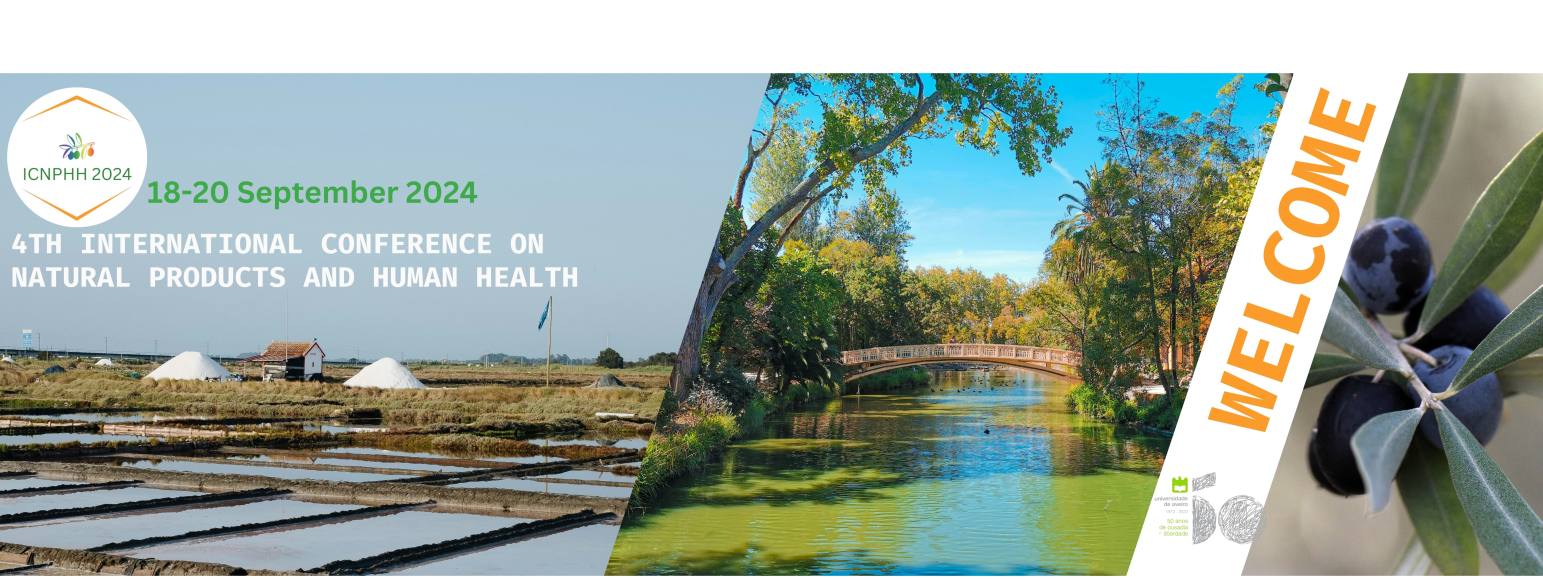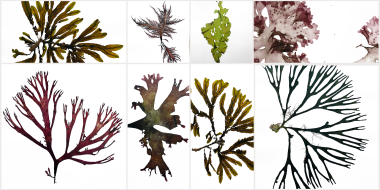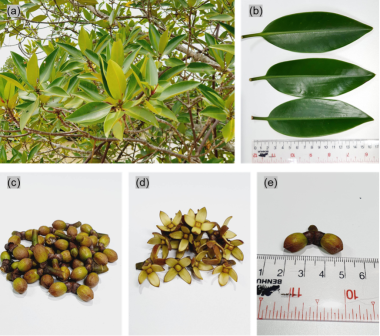Short Courses
ICNPHH-2024 Short Courses / Explore, Learn, and Meet experts
CNPHH-2024 offers a unique opportunity for students to develop their skills and knowledge through specialized mini-courses. Meet up close with renowned international experts and delve into cutting-edge topics in different areas. The mini-courses will take place on 18 September, 10:00 - 11:30 (London time), at the University of Aveiro. Each short-course will last approximately 1h:30m.
Do not miss this opportunity! Places are limited. Sign up now and guarantee your place in our mini-courses.
1 - The role of herbaria in phytochemical research and how are they made (Theorical-practical course )
Number of vacancies: 15
Place: Herbarium of the University of Aveiro (Department of Biology) rooms 26.0.6/7/9
Language: Portuguese & English
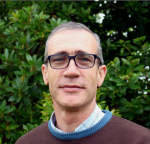
Prof. Doutor Paulo Silveira
Deparment of Biology, University of Aveiro, Portugal
2 - Plant based strategy to eliminate tuberculosis vis -a – vis its effectiveness
In many parts of the world an effective plant extracts are being used to treat tuberculosis especially drug resistance tuberculosis where the conventional drugs and toxic and have long course of treatment. This presentation undermines the importance of medicinal plant their important metabolite which work to kill the intracellular mycobacterium tuberculosis. In the current presentation the various medicinal plants tried by WHO as adjunctive therapy has been discussed. In this study some of the plant discussed which are used as immunomodulator and can be used as supplement with currently used anti-TB drugs. Natural products derived from medicinal plants are the new and emerging alternative of conventional treatment. The new plant metabolites will definitely play a critical role in controlling the tuberculosis and help in ending the Tb from grass root level.
Coordinator: Dr. Ajoy Kumar Verma
Collaborator: Dr. Jyoti Kayesth
Number of vacancies: 30
Place: University of Aveiro, Aveiro, Portugal
Language: English
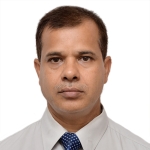
Dr. Ajoy Kumar Verma
Department of Microbiology, National Institute of TB & RD Sri Aurobindo Marg, 2Deshbandhu College, New Delhi, India
3 - Diversity of halophytes with nutraceutical/medicinal potential (Practical course)
Number of vacancies: 15
Place: Labs 26.1.12 DBio
Language: Portuguese & English
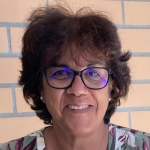
Prof . Helena Silva
Department of Biology, University of Aveiro, Portugal
Diversity of Portuguese halophytes with nutraceutical/medicinal potential (Practical course)
4 - Introduction to EEG and AI-Based Analysis
Collaborator: Júlia Ramos
Description:
This 1.5-hour workshop provides a practical introduction to recording EEG (electroencephalogram) data and using AI (artificial intelligence) for its analysis. The course is designed for those interested in the basics of EEG technology and its analysis using Artificial Intelligence.
Participants will begin with a brief introduction to EEG fundamentals, covering the setup and recording of brainwave data. This will include: how to place electrodes correctly, acquire signals, and monitor neural activity in real time.
The course will then move on to the application of AI in analyzing EEG data. Participants will be introduced to machine learning algorithms and techniques for processing and interpreting brainwave patterns. Through hands-on exercises, participants will use AI tools to analyze the collected data, identify neural signatures, and understand cognitive states.
By the end of the workshop, participants will have a basic understanding of how AI can be used to analyze EEG data. This course is suitable for beginners and does not require prior experience in EEG or AI. It is expected that the course will allow participants to explore the intersection of neuroscience and AI in a practical and straightforward manner.
Number of vacancies: 15
Place: Department of Medical Sciences
Department of Medical Sciences, Ibimed, University of Aveiro, Portugal Language: English
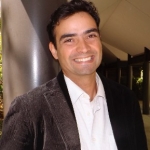
Prof. Miguel Pais Vieira
IBIMED, Department of Medical Sciences, University of Aveiro, Portugal
5 - Integrative Omics Approaches: Unveiling Biological Insights for Therapeutic Innovation
Collaborator: Prof. Rui Vitorino
Description:
In today's rapidly evolving scientific landscape, integrative approaches to omics data are critical to unlocking complex biological insights. By combining text mining and review of omics data collected in databases using bioinformatics tools, researchers can uncover hidden molecular patterns and relationships that expand knowledge of pathogenesis and drive innovation in therapeutic interventions. We hope this workshop will equip you with valuable skills and knowledge to apply integrative methods in your research endeavors. Let us explore together the exciting possibilities at the intersection of text mining and omics data.
Aim of the workshop
The main goal of this workshop is to provide you with a comprehensive understanding of how integrative tools can improve scientific research impacting human health. We will explore the intersection of text mining, data collection from databases and their analysis with bioinformatics to uncover the biological processes underlying a pathophysiological condition.
Agenda at a glance
Our session combines hands-on exercises and interactive discussions. We will start with an introduction to text mining tools and their relevance to the life sciences. We will then discuss integrative approaches, in particular how combining text mining with natural product studies can provide important insights. Participants will apply these concepts in a hands-on exercise and engage in a group activity on mapping interactions between biological entities. The workshop will conclude with a discussion on emerging trends in integrative biosciences and a Q&A session.
Number of vacancies: 35
Place: Department of Medical Sciences, University of Aveiro Language: English
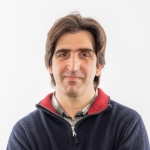
Prof. Rui Vitorino
IBIMED, Department of Medical Sciences, and LAQV-REQUIMTE, Department of Chemistry, University of Aveiro, Portugal

Prof. Rita Ferreira
IBIMED, Department of Medical Sciences, and LAQV-REQUIMTE, Department of Chemistry, University of Aveiro, Portugal
6 - Nuclear Magnetic Resonance (NMR) Spectroscopy as a Tool for Natural Products Structural Characterization
Collaborator: Prof. Vera Silva
Description:
Description: This 1.5-hour short course aims to cover the fundamental practical aspects of extracting and isolating plant metabolites, especially flavonoid-type compounds. It focuses on their structural characterization using 1D and 2D nuclear magnetic resonance (NMR) spectroscopy, a key tool for unequivocally identifying the structure of natural products.
The course is designed for those interested in the basics of NMR spectroscopy. It will begin with a brief introduction to the whole process until the isolation of a metabolite, using a case study. Then, theoretical and practical aspects of liquid NMR spectroscopy will be explained, from preparing the samples for analysis to interpreting the data.
This course is suitable for beginners and does not require prior experience in NMR spectroscopy. The course is expected to allow participants to learn the basic concepts and practical aspects of NMR spectroscopy. They will have the opportunity to analyze some NMR spectra to explore the potential of this tool in the characterization of natural products.
Number of vacancies: 15
Place: Department of Chemistry, University of Aveiro Language: Portuguese & English
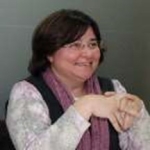
Prof. Diana Cláudia Pinto
University of Aveiro
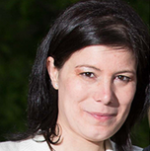
Prof. Vera L. M. Silva
University of Aveiro
7 - Novel High-throughput Screening Approach to Discover Bioactive Natural Products: A case study of endangered Astavarga plants Roscoea purpurea
Institution: Department of Natural Products and Medicinal Chemistry, CSIR-Indian Institute of Integrative Medicine, Canal Road, Jammu-180001, India
Description:
Description: In this talk, I am going to discuss our ongoing research program focused on uncovering bioactive natural products from endangered medicinal plants in the high-altitude Himalayas, our primary goal was to identify innovative and efficient discovery pathways to pinpoint compounds of interest. Recognizing the critical need to efficiently identify bioactive compounds before embarking on conventional purification techniques my presentation will spotlight our newly developed technique and its ability to expedite the discovery process for natural products.
The primary objective of this technique is to uncover bioactive natural products with "drug-like" properties by employing a novel isolation strategy. The isolated small molecules will possess the required physicochemical properties to navigate aqueous and lipid environments, greatly enhancing their potential for in vitro and in vivo biological activity. This approach specifically aims to capitalize on the amphiphilic nature of biologically active compounds, both antibacterial and non-antibacterial, while leveraging the solid stationary phase's high separation efficiency to isolate compounds with a high likelihood of demonstrating substantial in vitro and in vivo activity.
Number of vacancies: 20
Place: Department of Chemistry, University of Aveiro
Language: English
Dr Prasoon K Gupta
CSIR-Indian Institute of Integrative Medicine
8 - Computational Tools for Discovery of Bioactive Compounds of Natural Origin
Institution: UPES Dehradun
Description:
Institutions: Department of Pharmaceutical Sciences, School of Health Sciences and Technology, UPES, Dehradun, India Description: Our short course on "Computational Tools for Discovery of Bioactive Compounds of Natural Origin" will be roughly 1.5 hours duration. This course is designed to introduce you to the exciting intersection of computational science and natural product research.
Natural products have long been a rich source of bioactive compounds, leading to the development of numerous pharmaceuticals. However, the discovery process can be complex and time-consuming. Computational tools have revolutionized this field, enabling faster and more efficient identification of potential bioactive compounds.
Aim of the workshop
By the end of this course, we will demonstrate how computational methods can expedite the discovery of bioactive compounds from natural sources, equipping you with the skills needed to contribute to this innovative field.
Agenda at a glance
Computational Chemistry and Bioinformatics: Learn about the essential computational techniques and bioinformatics tools used in the identification and analysis of bioactive compounds.
Virtual Screening and Molecular Docking: Explore how virtual screening and molecular docking can predict the interaction between natural compounds and biological targets.
Quantitative Structure-Activity Relationship (QSAR) Models: Delve into QSAR models to predict the bioactivity of compounds based on their chemical structure.
Case Studies and Practical Applications: Analyze real-world examples and participate in hands-on sessions to apply computational tools to natural product research.>br>
Number of vacancies: 35, participants must bring a laptop with them.
Place: Department of Medical Sciences, University of Aveiro
Language: English

Prof. Anand Gaurav
UPES Dehradun
9 - The view of Art in Health Education
Institution: Pro-Rector of Research and Undergraduate Studies, Padre Albino University Center (UNIFIFA), Catanduva, Brazil
Description:
Institutions: Art, in its various manifestations, can be used as a teaching and learning tool even for technological or scientific content in human health. In this context, art appears with the potential to create new approaches to health education, in a multi and interdisciplinary way. This course will present ways to, through art, stimulate empathy, promote humanization, awaken curiosity and creativity, develop observation and promote integration and joy in acquiring knowledge, keeping students engaged.
A arte, nas suas diversas manifestações, pode ser usada como ferramenta de ensino e aprendizagem mesmo para os conteúdos tecnológicos ou científicos na área da saúde humana. Nesse contexto a arte desponta com a potencialidade de criar novas abordagens para a educação em saúde, de maneira multi e interdisciplinar.Nesse curso serão apresentadas formas de, por meio da arte, estimular a empatia, promover a humanização, despertar a curiosodade e a criatividade, desenvolver a observação e promover a integração e a alegria na aquisição do conhecimento, mantendo os alunos comprometidos.
Number of vacancies: 35
Place: Department of Medical Sciences, University of Aveiro
Language: Portuguese and/or English
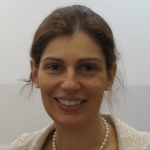
Prof. Doutor Ana Paula Girol
Padre Albino University Center (UNIFIFA), Catanduva, Brazil
10 - Resistance of Acinetobacter baumannii in hospitals: Current and future treatment options
Institution: Department of Medical Microbiology, Faculty of Medicine, University Malaya, Malaysia
Description:
Acinetobacter baumannii, a resilient gram-negative bacterium, has emerged as a significant cause of hospital-acquired infections, particularly in intensive care units (ICUs) worldwide. Currently, treatment options for infections caused by multidrug-resistant (MDR) A. baumannii strains. Currently, treatment options for this multidrug-resistant (MDR) pathogen are severely limited. Carbapenems, once effective against many Gram-negative bacteria including A. baumannii, are increasingly ineffective due to the spread of carbapenemase-producing strains. Clinicians often resort to polymyxins (colistin and polymyxin B), tigecycline, and aminoglycosides as last-line therapies, despite their associated toxicities and variable efficacy. Hence, the treatment of this bacterium needs to involve several promising strategies. One approach includes the development of novel antibiotics with activity against MDR strains, such as combination therapies targeting multiple resistance mechanisms simultaneously. Addressing the challenge of A. baumannii resistance requires a multifaceted approach involving both the development of new treatment options and enhanced infection prevention strategies to mitigate its impact on patient outcomes and healthcare systems globally. Overall, this course will discuss about its mechanisms of resistance, the current as well as alternative treatment options (including natural products) that could be used in the future.
Number of vacancies: 30
Place: Department of Medical Sciences, University of Aveiro
Language: English
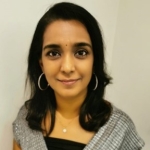
Prof. Dr Chandramathi Samudi
Department of Medical Microbiology, Faculty of Medicine, University Malaya, Malaysia
11 - Botanical art and illustration: A tool for understanding plants
Collaborator: Ana Sílvia Malhado Institution: Studio Petals, Kathmandu, Nepal; Arts4people, Portugal
Description:
This short theoretical and practical workshop will build up the capacity in understanding botanical art and illustrations in plant science. It is considered as one of the creative tools of visual communication in research, conservation and education in modern botany. Drawings, portraits of plants in habit, habitat and their morphological structures created with accuracy in different media, watercolor in paper or acrylic in canvas is the art of describing botany in visuals rather than hundreds of words. Scientific illustrations with scale bars in pen and ink medium aid to identify the plants from genus to species level than does the photography. The drawings, paintings or the scientific illustrations are executed by hand and direct observation of specimens, herbarium or the live plants in the lab or field by using some instruments. On the other hand, it is also intended that a demonstration will be carried out, in a light and less rigorous style, of a botanical element, with the aim of promoting the interest of a non-specialist, in being accompanied by a sketchbook for small notes of field.
This course can be attended by professional scientists, botanists to amateur students of science who are interested in art too.
Art materials suggested to bring for drawing and painting in watercolor medium with live plants
- Watercolor paper
- Water color, Palette, Brushes not larger than No.10.
- Water container, tissue paper.
- Scale /divider
It is intended that the participants can paint and sign a small work/regist.
Number of vacancies: 12
Place: Room 8.1.30 (Department of Biology, University of Aveiro)
Language: English
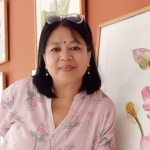
Neera Joshi Pradhan
Studio Petals, Kathmandu, Nepal
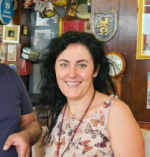
Ana Sílvia Malhado
Arts4people, Portuga
Round table
Women in Science on the Forefront of Natural Products for Health
Prof. Sónia Ventura, Department of Chemistry, University of Aveiro, Portugal
Prof. Ariane Zamoner Pacheco de Souza, Department of Biochemistry, Universidade Federal de Santa Catarina, LaBioSignal - Laboratory of Biochemistry and Cell Signal Florianopolis, SC, Brazil
Dr. Hazel Anne Tabo, College of Science and Computer Studies, DE LA SALLE UNIVERSITY-DASMARINAS, Cavite, Philippines
Prof. Sherine Khattab, University of Alexandria, Natural Products Research Network for Eastern and Central Africa (NAPRECA), Egypt
Prof. Subha Bhassu, Institute of Biological Sciences, Faculty of Science, University of Malaya, Kuala Lumpur, Federal Territory of Kuala Lumpur, Malaysia
Dr. Ragini Bodade - Savitribai Phule Pune University, India
Dr. Roma Pandey, IILM University, India
Dr. Geeta Devi Boris, University of Allahabad, India
Bioinspired Artwork in Competition
As part of the 4th ICNPHH-2024, Unifipa (Experimental and Clinical Research Center - CEPEC), Brazil, Co-host Institution, promotes an artwork competition.
Natural products, origin of new drug discoveries to promote health and treat several human diseases, are a rich source of inspiration for artists and scientific illustrators. This contest aims to encourage artistic and cultural production and value of natural health products through visual arts (e.g. photography, drawing, painting, sculpture, crafts).
ICNPHH-2024 registrants are invited to submit their ARTWORKS for this competition by 15 August 2024.
THEME: Natural products-Inspired Art for Health
The jury will award prizes to the first three classified.
Explore your artistic potential by communicating science through art!

